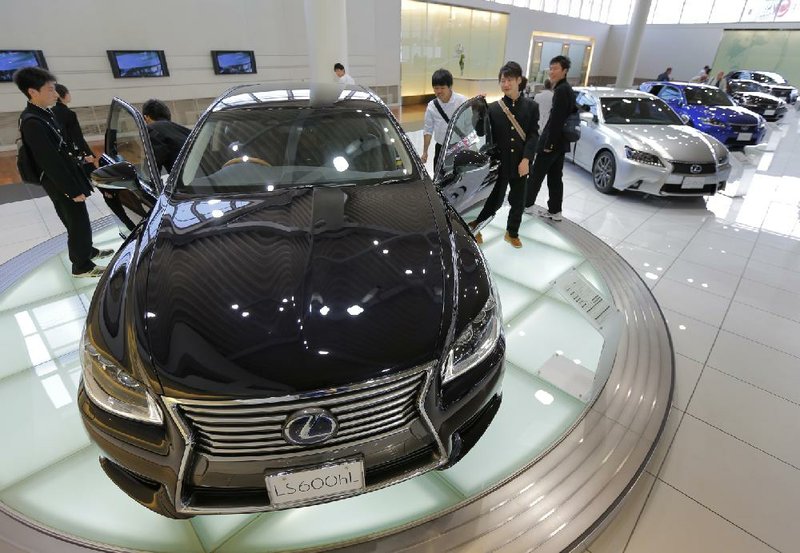TOKYO - Toyota shrugged off China sales woes to stay the world’s top selling automaker for the first half of this year, outpacing U.S. rival General Motors Co., which had held that spot for seven decades until 2008.
Toyota Motor Corp. sold 4.91 million cars and trucks around the world for the January-June period, down 1.2 percent from the previous year, according to numbers it released Friday.
GM said earlier this month that it sold 4.85 million vehicles worldwide in the six months, growing almost 4 percent as it gained U.S. sales faster than Toyota. For the second quarter, GM had a slight edge, outselling Toyota by about 10,000 vehicles.
GM was the top-selling automaker for seven decades before losing that title to the Japanese automaker in 2008. GM retook the spot in 2011, when Toyota’s plants were slowed by an earthquake and tsunami in northeastern Japan that wiped out parts suppliers.
Toyota has since recovered and was at the top again last year even as sales in China were hurt by anti-Japanese sentiment that flared over a territorial dispute, setting off boycotts and riots. The deep sales slump that started in the second half of last year has waned in the past few months, and Japanese automakers might be poised to start growing again in China.
Toyota stayed ahead of GM in the first half of 2013 because of solid sales in other regions. The maker of the Prius hybrid and Camry sedan also did better than expected in Japan, where the auto market has been stagnant for years.
Volkswagen AG of Germany, which includes in its group Audi, Porsche and other brands, trailed Toyota and GM in the global race, selling 4.7 million vehicles during the first half of this year.
Yet it is posting strong growth in countries such as China, offsetting a bleak European market, and it is also determined to become No. 1.
One key difference between Toyota and the two other automakers is that it manufactures heavy trucks. GM and Volkswagen have light trucks but no heavy trucks in their lineups.
Excluding sales of 78,000 trucks for Toyota’s Hino Motors, Toyota’s global vehicle sales totaled about 4.83 million for the first half, according to Toyota.
Toyota President Akio Toyoda said sales were not the only measure of excellence, and profitability, quality of workers and productivity were also significant.
“What truly defines being No. 1 is an eternal pursuit for which there is never an answer,” he told reporters this week.
GM officials also say they don’t care who wins the global sales race. But the numbers tend to reflect company momentum, and the outcome is good for morale not only for employees but the wide range of industries that auto manufacturing supports in each nation.
Yasuaki Iwamoto, auto analyst at Okasan Securities Co. in Tokyo, believes Toyota’s popularity in Southeast Asia will continue to spur vehicle sales numbers in forthcoming months. And that is a key plus for a manufacturer.
“The merit of scale is not just about numbers and is likely to lead to cost cuts,” he said in a report.
At a recent opening of a Toyota training facility, Keiji Furuya, a lawmaker and government minister, told the crowd he was proud of Toyota’s achievements.
“Toyota is the No. 1 automaker in the world. And it is important it stays the No. 1 automaker in the world,” he said.
Tatsuo Yoshida, auto analyst at Mitsubishi UFJ Morgan Stanley Securities Co., expects Toyota, GM and Volkswagen to be switching places at the top in forthcoming years as all three can count on growth in different global markets.
Business, Pages 25 on 07/27/2013

